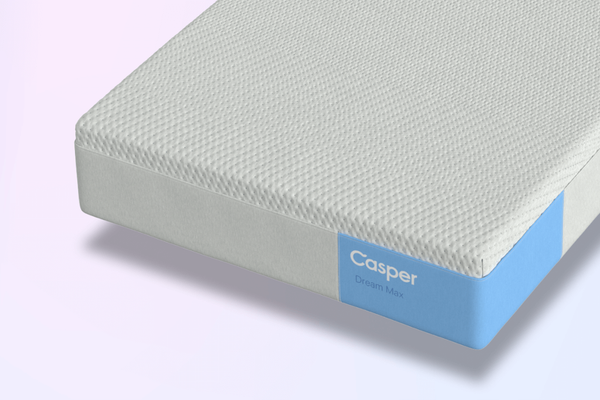
Frequently Asked Questions
1. Why is sleep important for our health?
2. What are the stages of sleep?
3. How does mattress comfort impact sleep quality?
4. What factors should I consider when choosing a mattress?
Sleep is a fundamental part of our lives, yet it often takes a back seat to our bustling daytime routines. You may have heard the phrase, “You snooze, you lose,” but in reality, good sleep is essential for success, health, and well-being. Understanding the science behind sleep and mattress comfort can dramatically improve your sleep quality and overall health. In this article, we'll delve into the various aspects of sleep, how mattress comfort affects it, and the science that links the two together.
The Importance of Sleep
Sleep is more than just a time for your body to rest; it is a complex process that allows for essential physical and mental activities. Here are several key factors that illustrate why sleep is so crucial:
- Physical Health: Sleep supports the healing and repair processes in your body. During deep sleep, your body undergoes tissue growth and repair, along with muscle recovery.
- Mental Health: A good night's sleep influences your mood and cognitive functions. Sleep deprivation has been linked to increased levels of anxiety and depression.
- Memory Consolidation: Sleep plays a vital role in memory. It enhances the processing of memories and helps store information for future use.
- Immune Function: Sleep is essential for proper immune function. Adequate rest can boost your immune response, helping fend off infections.
Understanding these aspects underscores the fundamental link between sleep and overall health, making it imperative to prioritize quality sleep.
The Stages of Sleep
To grasp the science of sleep, it's important to understand its various stages. Sleep is divided into two main types: Rapid Eye Movement (REM) and Non-Rapid Eye Movement (NREM). Each of these types contains several stages that serve different functions.
Non-Rapid Eye Movement (NREM)
NREM sleep is composed of three stages:
- Stage 1: This is the lightest form of sleep, lasting only a few minutes. You drift in and out, and can be easily awakened.
- Stage 2: The heart rate slows, and body temperature drops as you become less aware of your surroundings. This stage lasts for about 20 minutes and plays a role in overall sleep continuity.
- Stage 3: Known as slow-wave sleep or deep sleep, this stage is crucial for restorative sleep. It’s when the body repairs itself and memory is consolidated.
Rapid Eye Movement (REM)
Following the NREM stages, REM sleep ensues, marked by increased brain activity and vivid dreaming. REM sleep is important for cognitive functions such as learning, memory retention, and emotional processing.
The sleep cycle repeats several times throughout the night, cycling through various stages to provide adequate restorative effects. This complex process showcases how essential consistent, quality sleep is for our health.
Understanding Mattress Comfort
Your mattress plays a pivotal role in the quality of your sleep. It affects your body’s alignment, pressure points, and overall comfort. Here’s a closer look at why mattress comfort is so critical:
Spinal Alignment
A quality mattress provides the right support to maintain spinal alignment while you sleep. An improper mattress can cause discomfort, disrupt your sleep cycles, and even lead to debilitating back pain. Your mattress should support the natural curvature of your spine, allowing for a healthy sleep posture.
Pressure Relief
When you sleep, your body rests on various pressure points, including your shoulders, hips, and lower back. A poorly designed mattress can cause these areas to become sore or numb. Memory foam mattresses, for example, contour to the body, relieving pressure and providing support where needed.
Temperature Regulation
Comfort is not just about firmness; temperature also plays a significant role. Some materials trap body heat, making you feel hot during the night. A mattress that regulates temperature can provide a cooler sleeping environment, allowing for uninterrupted rest.
The Technology Behind Mattress Comfort
Advancements in technology have led to better understanding of mattress construction and its effects on comfort. Here’s a look at some modern innovations:
Material Innovations
- Memory Foam: Known for its pressure-relieving qualities, memory foam molds to the body while supporting the natural curves of the spine.
- Latex: An eco-friendly option that provides bounce and durability, latex mattresses are known for their breathable properties and resistance to allergens.
- Hybrid Mattresses: Combining the best of both worlds, hybrid mattresses feature layers of foam and innerspring coils to offer balanced support and comfort.
Adjustable Features
Many contemporary mattresses come with adjustable features that allow users to customize firmness levels and support areas. Whether it’s through adjustable foundation bases or multi-layer designs, flexibility can enhance personal comfort.
Factors Affecting Mattress Choice
Choosing the right mattress goes beyond your sleep preferences; several factors should be considered:
Body Type
Your weight and body type play vital roles in mattress selection. Heavier individuals may require a firmer mattress for proper support, while lighter individuals may prefer a softer surface for comfort.
Sleeping Position
- Back Sleepers: Require adequate support in the lumbar area to maintain proper spinal alignment.
- Side Sleepers: Need a softer surface to cushion the shoulders and hips while providing support.
- Stomach Sleepers: Generally benefit from a firmer mattress to prevent arching of the back, which can cause discomfort.
Allergies and Sensitivities
For individuals with allergies or sensitive skin, the materials used in mattress construction can greatly affect comfort and health. Hypoallergenic materials can lessen the risk of allergens and irritants, promoting better sleep quality.
The Psychological Aspect of Sleep and Comfort
Beyond physiology, psychological elements also play a role in how we experience sleep. Our environment can impact our ability to relax and unwind:
The Sleep Environment
Your bedroom should be a sanctuary for sleep. A clean, quiet, and dark space can promote relaxation, minimizing distractions and stressors. Creating an environment that encourages comfort is equally important as choosing the right mattress.
The Mind-Body Connection
Stress management and a lined mindset can boost sleep quality. Practicing relaxation techniques, such as meditation or deep breathing exercises, can enhance your sleep experience and offset the effects of sleep disruptions.
Your Path to Better Sleep
In order to create an optimal sleep experience, consider the following actionable tips:
- Choose the Right Mattress: Invest in a mattress that aligns with your personal needs, considering firmness, material, and sleeping position.
- Establish a Sleep Routine: Create a calming pre-sleep ritual, such as reading or meditating, to signal to your body that it’s time for rest.
- Limit Screen Time: Reducing exposure to screens before bed helps lower blue light, which can interfere with the production of melatonin, the sleep hormone.
- Monitor Sleep Hygiene: Ensure your bedroom is conducive for sleep with appropriate temperature, minimal noise, and darkness.
Taking intentional actions can lead to enhanced sleep quality and overall wellness.
Embrace the Sleep Revolution
The intricate relationship between sleep and mattress comfort is grounded in science and personal preference. A well-supported, comfortable mattress allows your body to fully embrace restorative sleep, unlocking a myriad of health benefits. With knowledge about sleep cycles, mattress technology, and personal preferences, you can pave the way to improved sleep and, ultimately, a healthier life. It’s time to embrace this sleep revolution—invest in your rest for a brighter, more energetic tomorrow!









